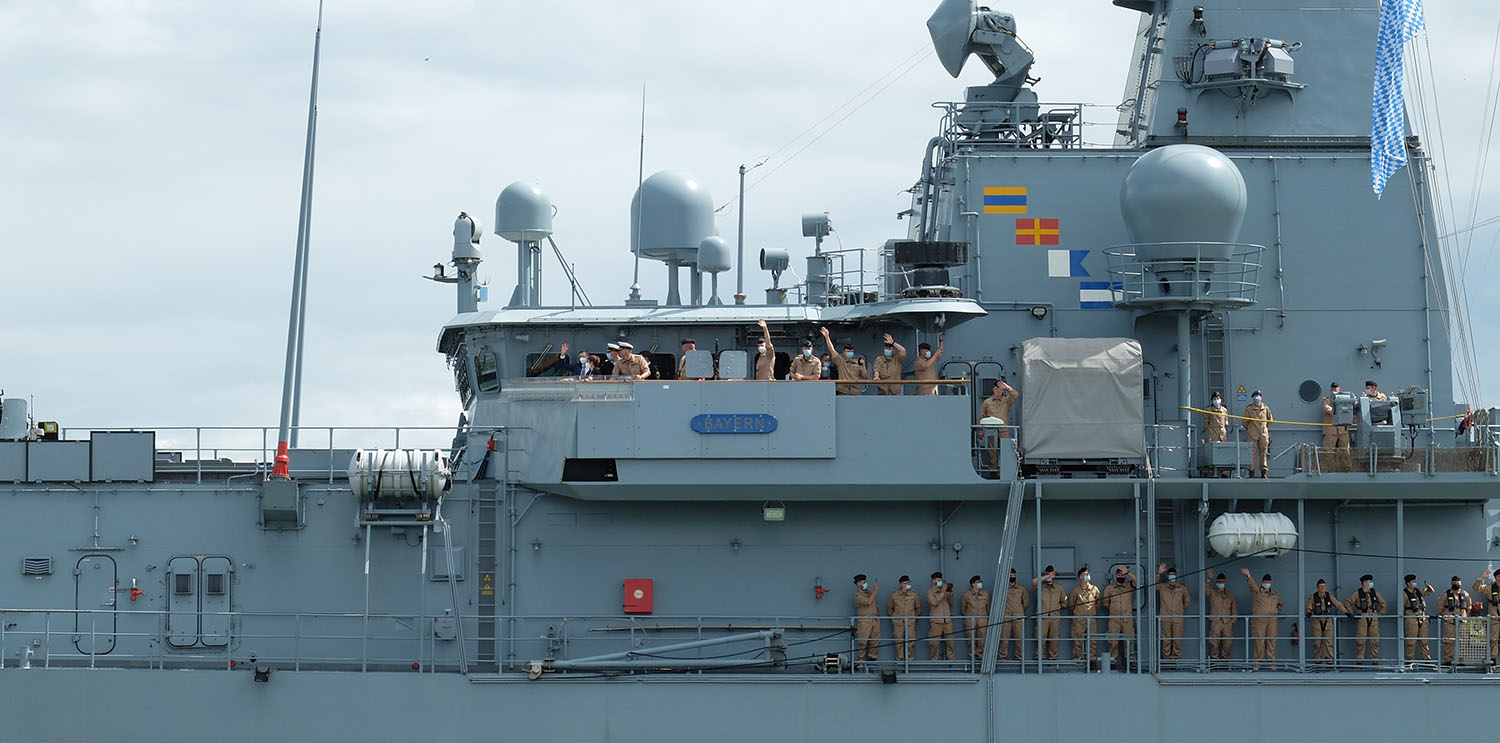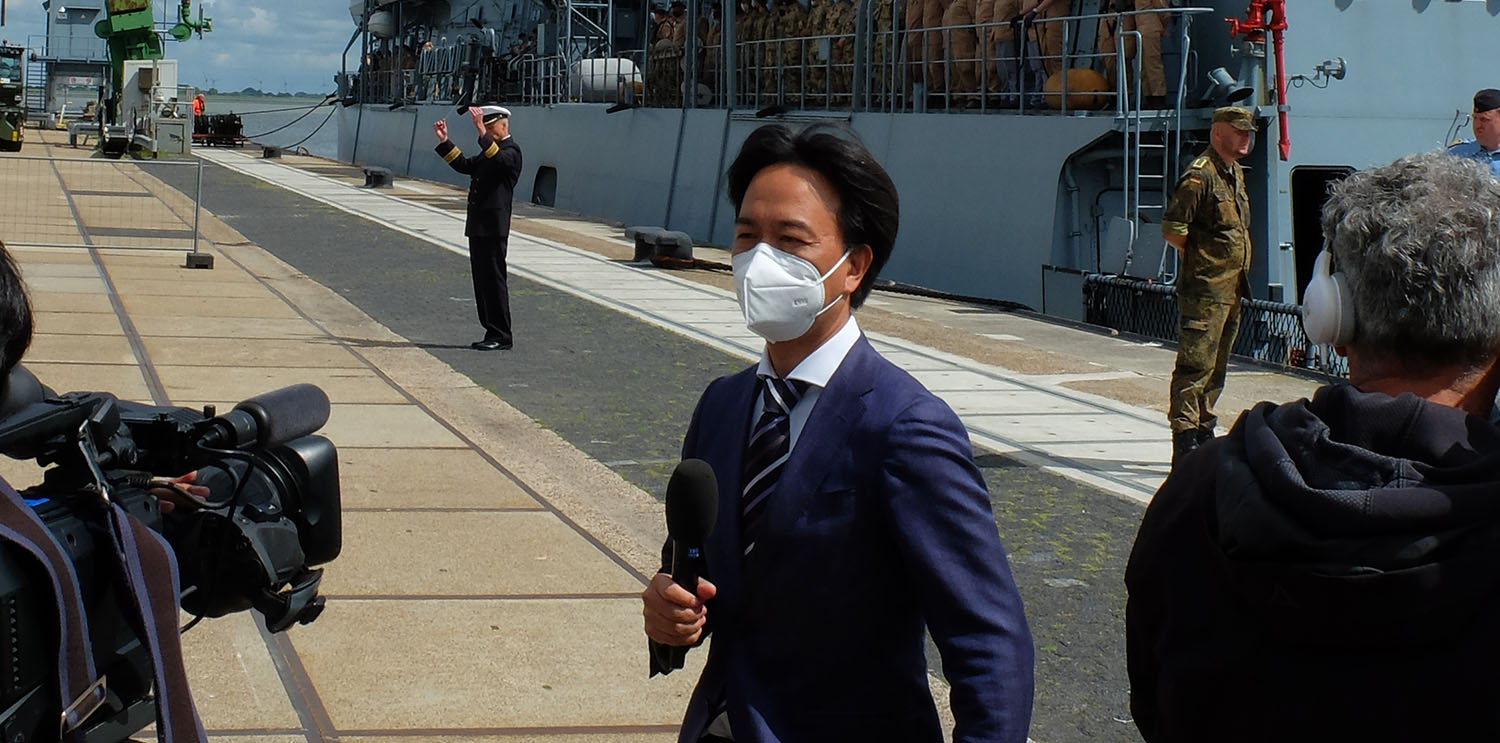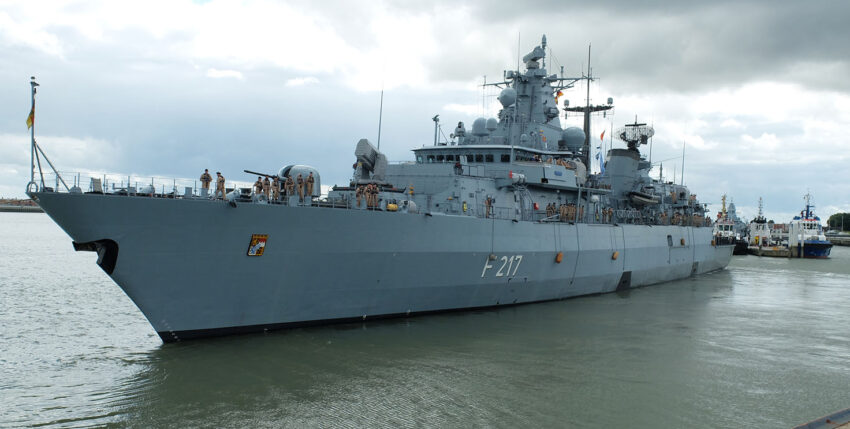After 19 years, a German Navy ship set sail for Southeast Asia again today. At the beginning of May 2020, the Hamburg but the trip had to be cancelled due to coronavirus. Despite the long preparation time, not all questions have been answered, partly due to the ongoing pandemic. The ports of call have now been officially announced, but whether the crew will be able to go ashore there despite being fully vaccinated will in some cases only be decided in the coming days and weeks. The coronavirus situation in some parts of the travel area is deteriorating rapidly, and some countries are already closing their borders again. This would be unpleasant for the men and women on board and, in extreme cases, could mean that on the planned return in February next year, fewer countries than previously planned could be visited in the usual way, possibly no cities could be explored and hardly any contacts could be made. Added to this are logistical problems, which include the delivery of spare parts and catering as well as the exchange of crew members.
The itinerary is now known, but concrete plans are still only vaguely discernible on the horizon. While the voyage of the frigate planned for 2020 Hamburg While participation in the Indian Ocean Naval Symposium in Réunion was still a key item on the programme, this time the focus is on "more intensive cooperation in joint exercises and training with partner armed forces", which has not yet been defined in more detail. The political aspect of the Indo-Pacific Deployment (IPD) now appears to be far more important. According to Vice Admiral Kay-Achim Schönbach, the main aim is to "show the flag and demonstrate on the ground that Germany stands up for the freedom of the sea lanes and compliance with international law in the region on the side of its international value partners".

If this statement by the inspector is taken seriously, the crossing of the South China Sea would be an important piece of the puzzle. This highly disputed sea area is claimed by several nations in different parts. However, none of these states has been as clear and ruthless as China in gradually asserting its interests. Time and again, the Americans set an example by flying the flag with so-called Freedom of Navigation Operations (Fonops), thereby insisting on what they consider to be the right to free passage. Few other nations in the region do the same, and when they do, they do so with the support of the US Navy. China condemns these passages with equal regularity and emphasises its supposed sovereign rights. The UK Carrier Strike Group is currently located around the Queen Elizabeth on its way to Japan. China has already made it clear in advance that the British are at most tolerated in the South China Sea. In the event of a possible intrusion into the twelve-mile zone of the Chinese-occupied island groups in the region, the threat was even made that an example could be made. In view of this situation, it will be interesting to see whether and how, perhaps even with whom, the German Navy will sail in this sea area. The commander of the fleet, Vice Admiral Rainer Brinkmann, commented: "By offering a port visit to the People's Republic of China, we are underlining the importance of China as one of our most important economic partners and providing an opportunity to deepen the dialogue. By passing through the South China Sea, we are also emphasising our legal position on territorial claims."

The naval inspector goes one step further with his announcement that he will "participate in the monitoring of United Nations sanctions against North Korea". There is a long list of UN sanctions, nine since 2006. These include Resolution 2375 from 2017, which prohibits mineral oil exports, among other things, and Resolution 2397 from the same year, which includes an investigation of ships. The plan is to participate in this together with the Japanese partners. A small German team has already been sent to Tokyo for this purpose. However, it is rumoured that the Bavaria Neither boarding nor hailing will be authorised, cooperative rules will be followed. Although: The Bavaria is fully operational for such cases, carries two on-board helicopters and has a twelve-strong boarding component of the naval battalion on board. This operation, which is scheduled to last three weeks, has not been authorised by parliament, as the parliamentary approval process is likely to be too long for such a short period of time.
With the journey of the Bavaria politics and the navy are heading for uncharted waters in many respects. An exciting six months lie ahead of us, and marineforum will provide the best possible media coverage of the journey. Let's hope that there will be plenty of information flowing from the official bodies so that interested parties and those at home can keep up to date with the current situation.
Further information and discussion points can be found in the highly readable article "Frigate Bayern in the Pacific: The return of German gunboat diplomacy?" by Moritz Brake and Sebastian Bruns at www.cimsec.org/frigate-bayern-in-the-pacific-the-return-of-german-gunboat-diplomacy
Text: mb, hsc; Photos: hsc










